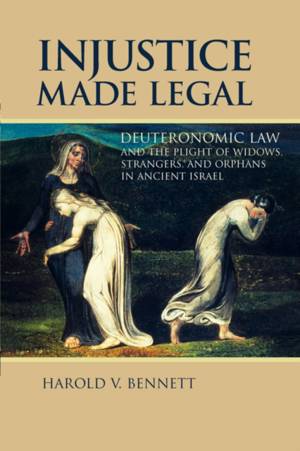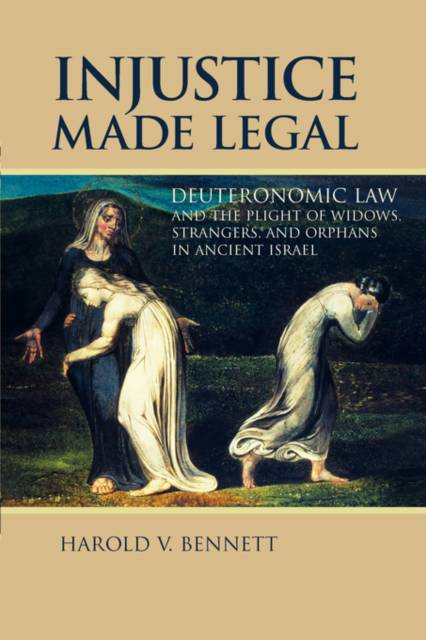
- Afhalen na 1 uur in een winkel met voorraad
- Gratis thuislevering in België vanaf € 30
- Ruim aanbod met 7 miljoen producten
- Afhalen na 1 uur in een winkel met voorraad
- Gratis thuislevering in België vanaf € 30
- Ruim aanbod met 7 miljoen producten
Zoeken
Injustice Made Legal
Deuteronomic Law and the Plight of Widows, Strangers, and Orphans in Ancient Israel
Harold V Bennett
€ 47,45
+ 94 punten
Omschrijving
The scriptural laws dealing with widows, strangers, and orphans are conventionally viewed as rules meant to aid the plight of vulnerable persons in ancient Israelite society. In Justice Made LegalHarold V. Bennett challenges this perspective, arguing instead that key sanctions found in Deuteronomy were actually drafted by a powerful elite to enhance their own material condition and keep the peasantry down.Building his provocative case on a careful analysis of life in the ancient world and on his understanding of critical law theory, Bennett views Deuteronomic law through the eyes of the needy in Israelite society. His unique approach uncovers the previously neglected link between politico-economic interests and the formulation of law. The result is a new understanding of law in the Hebrew Bible and the ways it worked to support and maintain the dehumanization of widows, strangers, and orphans in the biblical community.This daring work is necessary reading for anyone interested in the Hebrew Bible, ancient history, or social justice issues.
Specificaties
Betrokkenen
- Auteur(s):
- Uitgeverij:
Inhoud
- Aantal bladzijden:
- 228
- Taal:
- Engels
- Reeks:
Eigenschappen
- Productcode (EAN):
- 9780802825742
- Verschijningsdatum:
- 28/10/2002
- Uitvoering:
- Paperback
- Formaat:
- Trade paperback (VS)
- Afmetingen:
- 152 mm x 229 mm
- Gewicht:
- 335 g

Alleen bij Standaard Boekhandel
+ 94 punten op je klantenkaart van Standaard Boekhandel
Beoordelingen
We publiceren alleen reviews die voldoen aan de voorwaarden voor reviews. Bekijk onze voorwaarden voor reviews.







